
For most, food is fuel. For chef, author, and entrepreneur Hawa Hassan, it also stores memory and a map back home. In her new book, Setting a Place for Us: Recipes and Stories of Displacement, Resilience, and Community, set to release on May 13 via Penguin Random House, the James Beard Award winner traces a global journey—from a Somali refugee camp to New York kitchen––through 75 recipes sourced from eight countries impacted by conflict, including Afghanistan, Lebanon, Yemen, and El Salvador.
Following the success of her cookbook In Bibi’s Kitchen, Hassan expands her culinary lens, offering not just a collection of dishes but a deeply intimate archive of voices and traditions. Each chapter opens on a different scene: flatbreads in Iraq, cassava leaf stews in the Congo, bread pudding in Egypt. Stories are given flavor alongside ingredients, revealing how migration reshapes foodways and how cooking can become an act of resistance, reunion, and remembrance.
Born in Somalia and shaped by displacement, Hassan writes with the care of someone who knows what’s been lost—and what can still be passed down. Setting a Place for Us is more than a cookbook. It’s a love letter to diasporic kitchens, as well as an invitation to sit, eat, and listen.
What’s in your system, and where are you? What do you eat for breakfast?
I don’t usually eat breakfast, but I’m on this new energy and hormone watching thing that I’m doing to make myself stronger. So, I had a piece of toast with a tablespoon of peanut butter before I left home. Then I got a cup of coffee. Now I’m currently in Downtown Brooklyn, getting ready to have my post-workout protein shake.
Breakfast, lunch, or dinner, and why?
It depends on the day and the company, but I would say dinner. I lived a lot of my life by myself and for many years dinner wasn’t a thing that was the center of my day. It wasn’t the place I went to talk about the school dance, schoolwork, or my feelings, or anything like that. It was just to put something in your body, go to sleep, get ready for school. Now, there’s a whole ritual around dinner at my home. I got married recently and now that I live with somebody, it’s really nice to have this hope. Our days are really formed around what’s for dinner.

What led you to cooking?
When I arrived in New York in 2005, I had a coming to Jesus moment—Oh my God, who am I? I had divorced so many parts of myself in order to fit in. I started to explore who I was through cooking. What were the things that I remembered as my mom’s eldest daughter? What were the scents that reminded me of home? What was I attracted to when I ate with my friends?
In 2008, I reunited with my family in Norway. As God would have it, it was on Thanksgiving week. The Norwegians don’t celebrate Thanksgiving; they don’t even know that it exists. Immediately, I was shouting instructions and I was bossing people around. Then I came back to my life with an immense loneliness because I just got a taste of what could have been. I kept going back to Norway and trying to define myself for myself and then started to think: When this kind of thing happens—war and separation—what becomes of you? That’s when I really got into cooking.
Can you share some of your earliest memories around cooking with your mom?
Growing up in Mogadishu, my father was a mogul and he was well known in our country for real estate. We had a very settled life and a lot of help and a lot of resources and my parents were constantly traveling. But my very first experience of having to be a helper was when we got to the refugee camp in Mombasa and that’s where my first job was boiling water. Whether it was for tea or for pasta, my job was to boil water and to watch my younger siblings.
Boiling water—that’s really pared down to a fundamental first act. Can you tell me about your new cookbook, Setting a Place for Us?
Setting a Place for Us is a book that is focused on telling a different and new story about people that are historically in conflict zones. It’s about people and the joys of everyday lives in these places that the American media has often portrayed as echoes. What I really wanted to do is tell a different story about displacement, about separation, and what it means to experience prolonged civil conflict. I thought it would be great to use food as a vehicle to have those conversations. I hope people look at this work and say, “This is a gateway into more information for myself.” I’m not a politician. I’m not a historian. This is a personal experience and a love letter. I hope that really comes across in the pages of Setting a Place for Us.
I once read that simply traveling is a political act, and that stayed with me. When you visit a place, it’s often nothing like what the media or people say. Food, to me, is the easiest, most enjoyable political act—people learn without even realizing it.
If we’re willing to ask the questions, we can all learn together. I’ve spent the last 11 years learning, reporting, cooking, and traveling. I don’t share lightly. I’ve worked to bring Somali cuisine to the forefront, contribute to food media, and challenge the industry’s view of the global food landscape. Cooking is my vehicle for advocacy—a way to amplify our histories, cuisines, and voices.
Can you tell me about any setbacks you experienced while writing this book?
What I realized while traveling for this book was that the food industry isn’t equipped to support content like this. Food is so fashionable right now, but we’re not stepping back to ask where we want this industry to be in 10 years or what kind of stories we should be investing in. Projects like mine might get praised at awards, but they don’t receive the backend support they deserve. In [the] Congo, I was on my own. In Lebanon, I was on my own. There wasn’t a publisher or editor with a fixer on the ground or a car waiting for me. That realization made me think, If I’m going to keep doing this work, how can I do it sustainably? It’s not a setback, but it was a necessary wake-up call.

What’s a dish that represents where you’re at in your life right now?
I think probably any stew, but there’s a lamb stew that I make a lot in our house and I love the ritual of making it. I go to my local butcher. I get my lamb neck. The guy knows exactly how to cut it for me. I go home. I season it. I keep it and then I build the stew, which takes me about five hours to do and there’s tenderness and care, but it’s hands-off. There’s such a peace to making it and I feel like that’s kind of where I am right now. There’s a lot of peace in my life. There’s a lot of ease in my life currently. There’s been a lot of feeling that’s happened even just from this book. I would say that that recipe probably represents where I am—a slow simmer and hands-off.
That’s a beautiful analogy. Can you tell me about some of your favorite recipes in your new book?
Oh, there’s so many great recipes. Om Ali comes to mind instantly. It’s a bread pudding from the Egypt chapter made with day-old croissants, pistachio, and shredded coconut, mixed with heavy cream, half-and-half, and sugar. It’s light yet indulgent, not overly rich. There’s a stew called Moambé from the Congo chapter that I love. It has a quarter cup of peanut butter—I love peanut butter—and it’s one of those dishes that disappears fast because it’s so good. It’s delicious. It’s a chicken stew. There’s a broccoli recipe with tahini from the Lebanon chapter. I love the Lebanon chapter. I stayed in Lebanon for 10 days and went from the route all the way to the countryside. I really had an incredible time in Lebanon. I learned so much and then I was reminded so much of home. Lebanon has a really special place in my heart.
What reminded you of home?
Oh man, the call to prayer every morning—waking up with it in your ear. The hotel I chose for us was right by the mosque. And the way that Lebanese people eat together—it doesn’t matter if you’re a complete stranger. Even if you’re just passing by on the sidewalk, there’s an offering constantly happening.
Is there a kitchen etiquette rule you live by?
Clean as you go. Please don’t upset me. Be organized.
This is a bigger question. Can you draw a parallel between your relationship to food and cooking and a way of looking at the world?
Oh yes, absolutely. The question I’m mostly asking myself every day is, What’s for dinner? I’m doing this thing where there’s food at home. So we’re not eating out a lot. In part because of the economy and in part because I love to grocery shop. We have to cook what we have. One of the things that I feel almost every day is that I’m very hopeful about what’s in our fridge and I’m positive that I can feed [everyone] with what’s at home. That’s really my outlook on life. I’m a very hopeful person. I am by nature a “the cup is running over” type of person. My personality in life and my personality in the kitchen are both the same. I don’t get flustered in the kitchen, and I try not to get flustered in life.

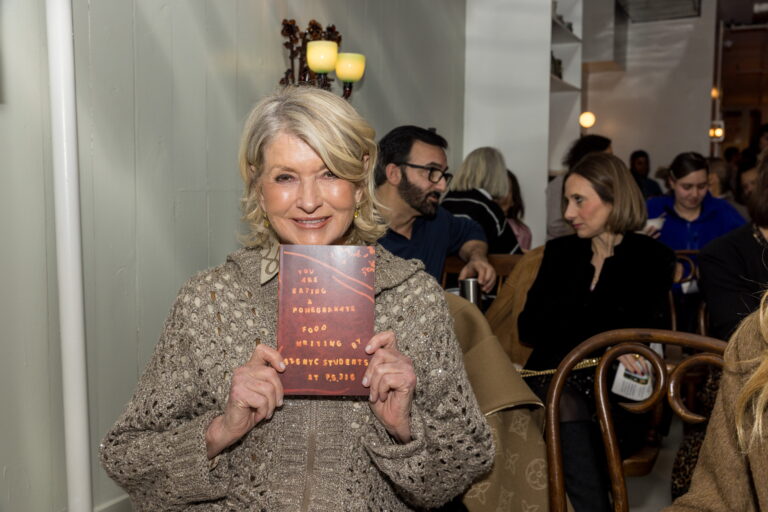
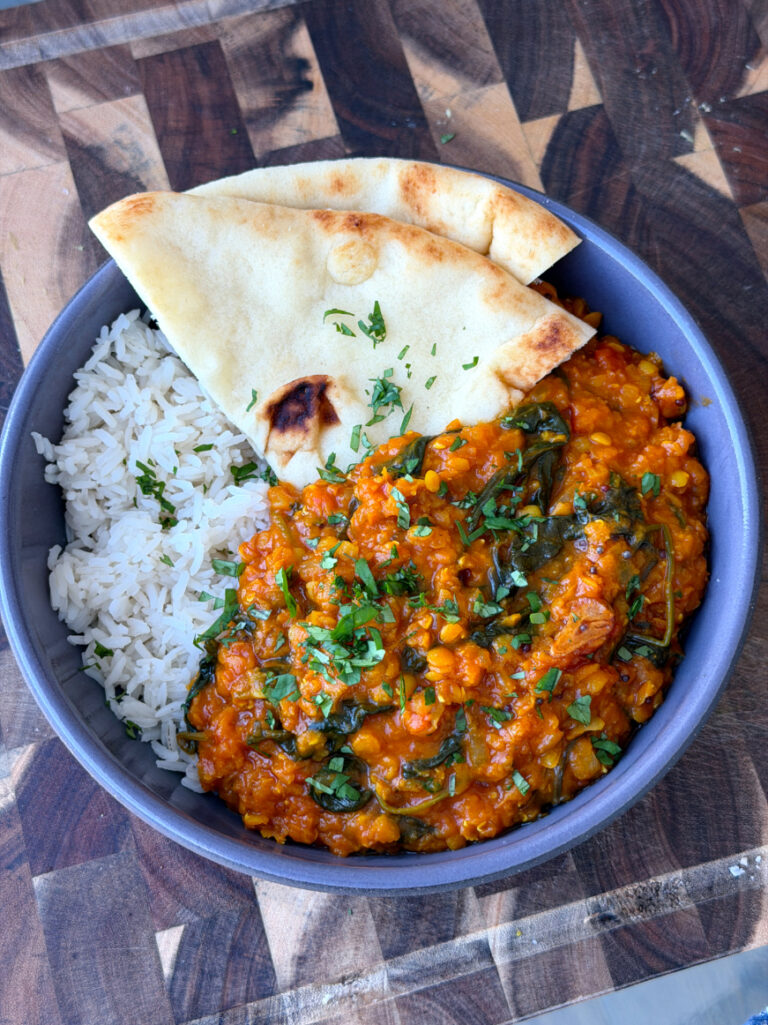
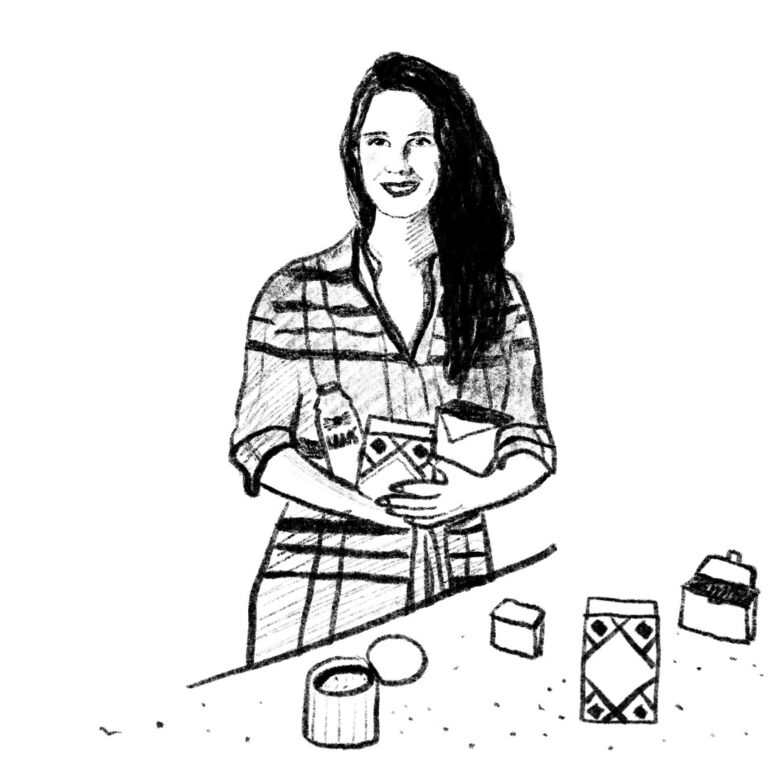
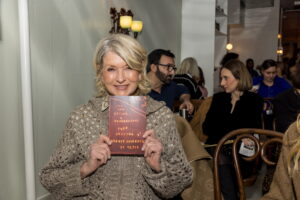
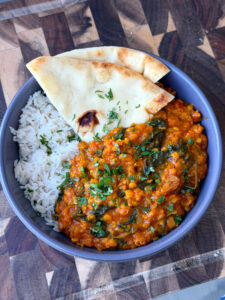
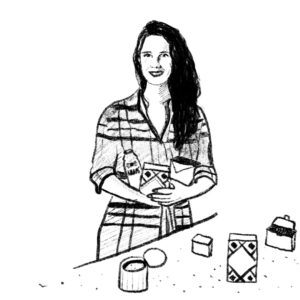



 in your life?
in your life?

